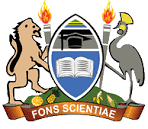Forgiveness and reconciliation rituals: Pathways to depolarization for adolescents in rural Kenya, Cameroon and Ethiopia
Executive Summary:
One of the perennial concerns of human beings is the need for peace, prosperity, and harmony in society, where people can truly live out their potential. While every society has its own internal mechanisms and institutions to manage disputes in a way that preserves the integrity and fabric of the society, many of such African Indigenous forgiveness and reconciliation rituals have been faded by changing times that include new social trends occasioned by globalizing forces. Additionally, not much research has been done on the role of these indigenous forgiveness and reconciliation rituals in promoting peaceful conflict resolution among children and adolescents who represent the future of humanity or how these rituals contribute to individual and community resilience in the face of adversity. Following these issues our project will investigate how forgiveness and reconciliation rituals can be useful in helping adolescents from Kenyan Turkana, Ethiopian Amhara and Cameroonian Grassland communities to embrace peaceful conflict resolution processes. We target to answer three questions that flow one into another;
1. What are the mechanisms of depolarizations present in
indigenous African forgiveness and reconciliation rituals?
2. What adolescent focused mechanisms of depolarization in
these rituals can be adapted to modify an already existing African nation’s
model of peaceful conflict resolution?
3. Do adolescents who participate in these rituals embrace peaceful conflict resolution processes?
We will answer these questions by using qualitative and quantitative methods. Qualitative methods will involve semi-structured in-depth individual interviews and Focus Group Discussions with identified stakeholders such as experts in forgiveness and reconciliation rituals. Quantitative methods will include psychometric tests with the recruited adolescents. We will hold dissemination workshops with stakeholders and adolescents that took part in the study. We plan that our findings be included in policy briefs and curricula that promote indigenous conflict resolution efforts in Kenya and Globally in addition to publishing in open access journals for a wide reach. We will apply the indigenous African philosophy of Ubuntu to shed light on the psychological, spiritual and developmental value of forgiveness and reconciliation rituals and also promote global north-global south learning in relation to sustainable conflict resolution.
Investigation
team
1. Dr. Pamela Wadende - Project
Director, Kenya
2. Mr. Patrick Njoroge - Project Data
manager, Kenya
3. Prof Mengstie Mulate - Collaborator,
Ethiopia
4. Dr. Simegn Sendek - Collaborator,
Ethiopia
5. Prof. Valentine Ngalim - Collaborator,
Cameroon
6. Dr. Mathew Ngoran - Collaborator, Cameroon
 Research, Extension, Innovation and Resource Mobilization
Research, Extension, Innovation and Resource Mobilization